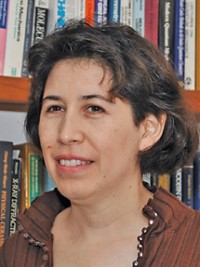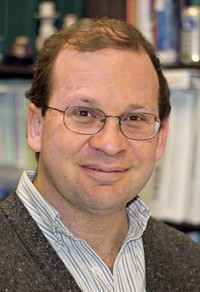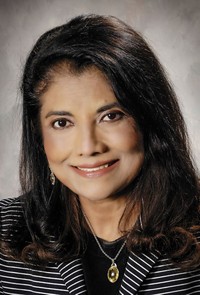Advertisement
Grab your lab coat. Let's get started
Welcome!
Welcome!
Create an account below to get 6 C&EN articles per month, receive newsletters and more - all free.
It seems this is your first time logging in online. Please enter the following information to continue.
As an ACS member you automatically get access to this site. All we need is few more details to create your reading experience.
Not you? Sign in with a different account.
Not you? Sign in with a different account.
ERROR 1
ERROR 1
ERROR 2
ERROR 2
ERROR 2
ERROR 2
ERROR 2
Password and Confirm password must match.
If you have an ACS member number, please enter it here so we can link this account to your membership. (optional)
ERROR 2
ACS values your privacy. By submitting your information, you are gaining access to C&EN and subscribing to our weekly newsletter. We use the information you provide to make your reading experience better, and we will never sell your data to third party members.
Awards
2022 ACS National Award winners—Part II
Recipients are honored for contributions of major significance to chemistry
by Nina Notman, special to C&EN
January 23, 2022
| A version of this story appeared in
Volume 100, Issue 3
ACS Award for Research at an Undergraduate Institution: Chip Nataro

Sponsor: Research Corporation for Science Advancement
Citation: For outstanding achievements in the study of bis(phosphino)metallocene compounds accomplished with undergraduate researchers and for his dedication to mentoring students and faculty
2022 ACS National Award winners—Part II
Current position: Marshall R. Metzgar Professor of Chemistry and head of Chemistry Department, Lafayette College
Education: BS, chemistry, Messiah College; PhD, inorganic chemistry, Iowa State University
Nataro on the most rewarding part of his job: “The incredible students I have worked with. From their first struggle putting a septum on a Schlenk flask, to wherever their careers take them, I am proud to have had a small part in their development and excited for their success after Lafayette. ‘We are what they grow beyond’ says Master Yoda. I hope I have been able to help them grow beyond me to their fullest potential.”
What Nataro’s colleagues say: “Chip is one of the most productive researchers at an undergraduate institution. He is an outstanding mentor to chemistry students and faculty. He has worked with faculty across the nation to bring research into the undergraduate classroom.”—Adam R. Johnson, Harvey Mudd College
ACS Award for Team Innovation: Philip Fontaine, Douglas S. Ginger, Suzanne Guerra, Pradeep Jain, and Jian Wang
Sponsor: ACS Corporation Associates
Citation: For exceptional innovation, teamwork, and speed to develop Innate Precision Packaging Resins with novel molecular architectures that deliver unprecedented film toughness yielding more sustainable packaging
What their colleagues say: “This multidisciplinary team collaborated to develop and commercialize a new family of linear low-density polyethylene resins with unprecedented performance. They accomplished this with exceptional speed going from concept to full-scale manufacturing and product family launch in only 18 months. The team’s combination of product, process, and application development expertise was required to successfully achieve this. This new family of resins enables customers to achieve outstanding packaging performance in the most challenging applications.”—Mukund Parthasarathy, Dow

Philip Fontaine
Current position: Principal research scientist, Dow
Education: BS, chemistry, Western Connecticut State University; PhD, organometallic chemistry and catalysis, Yale University
Fontaine on the favorite aspect of his job: “Seeing something created on the lab benchtop scale up all the way to a commercial production plant. Tracing some of the products currently sold in my local supermarket all the way back to the lab bench, or even further to the initial idea that inspired that first experiment, brings me great satisfaction.”

Douglas S. Ginger
Current position: Senior research scientist, Dow
Education: BS, chemical engineering, Ohio State University
Ginger on the most rewarding part of his job: “I’m lucky to get to work on almost every stage of new product development. I am at the table for initial design discussions, I get to pilot new materials at the small scale, and I get to scale up these innovations onto our world-scale manufacturing assets. It is easy to see the impact of my work and fun to interact with such diverse technical development and business teams.”

Suzanne Guerra
Current position: Principal research scientist, Dow
Education: BS, chemistry, Louisiana State University; MS, polymer engineering, University of Tennessee
Guerra on a particularly proud career moment: “I was especially proud of the launch of our Innate Precision Packaging Resins. I was able to work with a talented team to successfully design and implement these new resins which provide unprecedented stiffness-toughness balance in films. This product family delivers a new tool set for film converters which enables them to design more sustainable packaging solutions.”

Pradeep Jain
Current position: Corporate fellow, Dow
Education: B Tech, chemical engineering, Indian Institute of Technology; MS, chemical engineering, University of New Mexico
Jain on who inspired him to become a scientist: “Growing up, I was driven by curiosity, so I should have realized that I was destined to be a scientist. However, it was my first mentor, Che-I Kao, who harnessed this trait in me and taught me to look ahead, anticipate, define critical issues, and apply the scientific methodology to come up with solutions.”
Jian Wang

Current position: Senior technical service and development scientist, Dow
Education: BSc, polymer science and engineering, University of Science and Technology of China; MSc, chemical engineering, Hong Kong University of Science and Technology; PhD, chemical engineering, Texas Tech University
Wang on how he became interested in polymers: “During my high school years, I fell in love with both physics and chemistry. When I applied for college, I told the recruiter that I didn’t want to give up either subject and asked which major I should choose. He told me to study polymers. I followed his advice, and the rest is history.”
ACS Award in Analytical Chemistry: Frances S. Ligler

Sponsor: ACS Division of Analytical Chemistry
Citation: For the invention and development of portable optical biosensors for food, environment, health, and homeland security and for educating collaborators across disciplines to perform analytical chemistry
Current position: Ross Lampe Distinguished Professor of Biomedical Engineering, University of North Carolina at Chapel Hill and North Carolina State University
Education: BS, biology and chemistry, Furman University; DPhil, biochemistry, and DSc, biosensor technology, University of Oxford
What Ligler’s colleagues say: “Fran is well known for her cutting-edge multidisciplinary research at the interface of chemical measurement science, immunology, biochemistry, and engineering. Her efforts over many decades have focused on developing functional biosensing technologies based on advances in biomaterials and microfluidics. As an indication of the scope of her impact, I note that 11 biosensors produced commercially rely on patents and technology developed in her laboratories.”—Jeanne E. Pemberton, University of Arizona
ACS Award in Applied Polymer Science: Richard B. Kaner

Sponsor: Eastman Chemical
Citation: For the development of inexpensive, scalable nanostructured conjugated polymers and their use in PolyCera separation membranes for cleaning up oil/water contamination
Current position: Dr. Myung Ki Hong Endowed Chair in Materials Innovation and Distinguished Professor, University of California, Los Angeles
Education: AB, chemistry, Brown University; PhD, inorganic chemistry, University of Pennsylvania
Kaner on his most memorable experiment: “As a graduate student I worked with Alan MacDiarmid and Alan Heeger developing the first conducting polymer batteries. One Saturday, I calculated that if I used a sufficient amount of polyacetylene, I should be able to store enough energy to run a propeller for at least half an hour. Not only did this work, but I ended up taking this setup along to a party that evening and the propeller was still running at 2 a.m.!”
What Kaner’s colleagues say: “Ric developed a novel polymeric membrane that resists fouling and is capable of cleaning the dirtiest waters to the cleanest levels. This hydrophilic membrane (PolyCera) combines the separation properties of expensive ceramic membranes with the low-cost and scalability of polymer membranes. These membranes are now used in installations all over the world, from oilfields in California and Texas, to household water filters in India, to automotive manufacturing operations in China.”—John R. Reynolds, Georgia Institute of Technology
ACS Award in Chromatography: Peter J. Schoenmakers

Sponsor: MilliporeSigma
Citation: For outstanding and innovative contributions to the fields of polymer analysis and multidimensional liquid chromatography and his relentless efforts to promote chromatography in general
Current position: Professor of analytical chemistry, University of Amsterdam
Education: MSc, chemical engineering, and PhD, analytical chemistry, Delft University of Technology
Schoenmakers on his most memorable project: “Our efforts to make spatial three-dimensional liquid chromatography a reality. We are not yet close, but since it promises a three orders of magnitude increase in separation power in comparison with conventional one-dimensional LC (and two orders of magnitude in comparison with comprehensive two-dimensional liquid chromatography), why give up?”
What Schoenmakers’s colleagues say: “Peter is the most relentless and active promoter of the field of chromatography. Whenever he is chairing a session, heading a poster or award committee, organizing a meeting, or giving a talk, he radiates an unconditional love and passion for the field and always goes at length to maximally involve the younger generations and newcomers in the field. His talks are always very educational and at the same time so highly entertaining that they always draw large crowds.”—Gert Desmet, Vrije Universiteit Brussel
ACS Award in Colloid Chemistry: Matthew Tirrell

Sponsor: Colgate-Palmolive
Citation: For pioneering discoveries and applications of self-assembling peptide amphiphiles and for seminal contributions to the understanding of colloid modification with polymer brushes
Current position: Dean of the Pritzker School of Molecular Engineering, University of Chicago
Education: BS, chemical engineering, Northwestern University; PhD, polymer science and engineering, University of Massachusetts
Tirrell on the most rewarding part of his job: “Teaching, which permeates every aspect of academic life, in the classroom to be sure, but also in every paper and proposal that one writes, and when one mentors students, postdocs, and younger faculty members. Teaching requires you not just to know the subject or the field but to tailor how you present material to whatever audience you are addressing.”
What Tirrell’s colleagues say: “Matt has revolutionized the field of colloid science through meaningful, field-defining contributions from the synthesis of colloids, to the understanding of colloidal interactions, to the manipulation of colloidal surfaces or interfaces, and to the characterization of structure and rheology of colloids. He has also developed innovative uses of colloids in technology.”—Juan J. de Pablo, University of Chicago
ACS Award in Industrial Chemistry: Jerzy Klosin

Sponsor: ACS Division of Industrial and Engineering Chemistry
Citation: For the development of versatile homogeneous catalysts for the production of a wide range of polymer-based materials on a large industrial scale
Current position: Senior fellow, Dow
Education: MSc, inorganic chemistry, Adam Mickiewicz University; PhD, organic chemistry, University of Florida
Klosin on who inspired him to become a scientist: “I owe my early fascination with science to two people. The first was my father who, as a science teacher, exposed me very early on to scientific experiments and instruments. Then, there was my biology teacher who during one of our classes performed an experiment with acids, bases, and phenolphthalein. I was mesmerized by the sudden color changes (which felt like magic to me), and I wanted to understand the true reasons behind them. This led me straight to studying chemistry.”
What Klosin’s colleagues say: “Jerzy is a remarkable industrial chemist. He played and continues to play a leading role in the discovery and development of commercially impactful molecular catalysts for olefin polymerization. He is a critical asset to Dow in the catalysis area.”—Tobin J. Marks, Northwestern University
ACS Award in Inorganic Chemistry: Susan M. Kauzlarich

Sponsor: MilliporeSigma
Citation: For the development of a new class of inorganic compounds, transition-metal Zintl phases, and demonstrating their application in energy conversion devices and as nanoparticle synthons
Current position: Distinguished Professor of Chemistry, University of California, Davis
Education: BS, chemistry, William and Mary; PhD, physical chemistry, Michigan State University
Kauzlarich on the most rewarding part of her job: “Teaching and mentorship of students. I have been involved in many local programs to support and mentor women and underrepresented groups since I started my academic position. Having the opportunity to mentor students, encouraging them to ask questions, think outside the box, and providing the excitement of discovery is the start. As they develop as independent scientists, I find I learn more and that their enthusiasm is contagious.”
What Kauzlarich’s colleagues say: “Over the past three-plus decades, Susan has made fundamental contributions to the field of inorganic solid-state chemistry that have, in addition to having broad-reaching applications in energy conversion, magnetics, and biotechnology, established Zintl phases as a class of compounds that display important physical properties.”—Robert J. Cava, Princeton University
ACS Award in Organometallic Chemistry: R. Morris Bullock

Sponsor: Dow
Citation: For pioneering contributions to earth-abundant metal catalysts for the production and utilization of dihydrogen, and fundamental studies on the reactivity of transition metal hydrides
Current position: Director of the Center for Molecular Electrocatalysis and laboratory fellow in the physical sciences division, Pacific Northwest National Laboratory
Education: BS, chemistry, University of North Carolina at Chapel Hill; PhD, chemistry, University of Wisconsin–Madison
Bullock on the joy of working with others: “Everybody in our research group, regardless of the stage of their career, has something valuable to contribute, often showing remarkable innovation in their approaches. I am thrilled to see the sparks of creativity and excitement in my early career coworkers and to see their careers develop.”
Advertisement
What Bullock’s colleagues say: “For more than 30 years, Morris has consistently been recognized as a leading thinker and innovator in organometallic chemistry, including synthesis and mechanisms of catalysts and basic organometallic processes.”—Thomas B. Rauchfuss, University of Illinois Urbana–Champaign
ACS Award in Polymer Chemistry: Robert M. Waymouth

Sponsor: Exxon Mobil
Citation: For pioneering work in catalytic polymerization for the generation of functional responsive materials ranging from thermoplastic elastomers to new classes of gene delivery agents
Current position: Robert Eckles Swain Professor of Chemistry and professor, by courtesy, of chemical engineering, Stanford University
2022 ACS National Award winners—Part II
Education: BS, mathematics, and BA, chemistry, Washington and Lee University; PhD, chemistry, California Institute of Technology
Waymouth on his scientific hero: “It’s Joseph Fourier. In the context of studying the practical question of heat transfer in metal bars, he invented a field of mathematics and gave us new tools that changed how we think about solving scientific problems. It’s humbling to contemplate whether anything that we as scientists do today will still be topics of discussion in 200 years.”
What Waymouth’s colleagues say: “For the past 30 years, Bob has demonstrated exceptional creativity and productivity toward advancing concepts in catalysis by development of rigorous mechanistic insights and with application toward methods that provide for significantly unique polymer chemistry developments.”—Karen L. Wooley, Texas A&M University







Join the conversation
Contact the reporter
Submit a Letter to the Editor for publication
Engage with us on Twitter